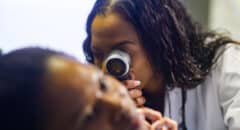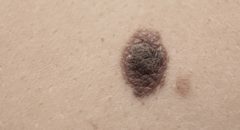 (BlackDoctor.org) — Did you know that regardless of the color of your skin, and no matter what time of year it is, sunscreen is a vital part of staying healthy?
(BlackDoctor.org) — Did you know that regardless of the color of your skin, and no matter what time of year it is, sunscreen is a vital part of staying healthy?
Despite this fact, only about 31 percent of African-American adults engage in at least one form of sun protection behavior such as wearing a hat, while 63 percent never use sunscreen, according to a new study.
Melanoma is more than 10 times higher in whites compared to blacks, but over a five-year span, blacks have a 78 percent lower survival rate compared to 92 percent of whites, according to study background material. One reason might be that melanoma in blacks usually is first seen only the disease’s advanced stages, researchers suggest.
Latrice Pichon, Ph.D., of the school of public health at the University of Michigan, led the study, which appears online and in the March issue of the American Journal of Preventive Medicine.
Researchers sent a survey to 2,187 African Americans living in California between 2006 and 2008. Participants reported whether they had sun-sensitive skin and if they used sunscreen, hats and sunglasses.
The study identified disparities in sun protection behavior by sex, socioeconomic status and sun-sensitivity.
“The findings may point to potential places to intervene in the future,” Pichon said. “We can use these data to design sun-safety programs tailored to subgroups of African Americans, particularly men, and those who have low income and education.”
But Otis Brawley, M.D, medical oncologist, cancer epidemiologist and chief medical officer for the American Cancer Society, offers a contrasting view. He said many dark-skinned blacks do not worry about protecting their arms, legs and trunk from the sun and that might not be a bad thing.
“In my 25-year career, I have almost never seen melanoma in blacks except on the soles of the feet, palms of the hands, nail beds and sometimes on the scalp,” Brawley said. “One problem I see with the study is that a significant number of melanoma cases, when left alone, do not progress. However, we don’t have a test that says which melanoma, if left alone, will regress or go away.”
Still, Brawley said he gives the same advice to light-skinned blacks as he does to white patients.
“When people with a light complexion type go out in the sun, they need to use sun protection to avoid getting sunburned.”
Pichon said that the next steps are to follow up on the study finding, including deeper investigations of a larger sample of the African-American community.
“Next steps would include conducting interviews or focus groups with African Americans to explore cultural and historical influences on sun protection behavior.”






